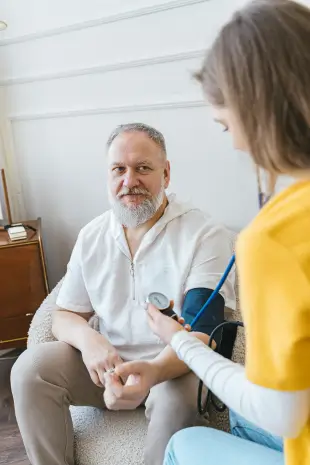Multidisciplinary Care

Comprehensive Care, One Connected Team
At MSC, we believe that the best outcomes come from a team that works together—seamlessly. That’s why our model is built on a robust multidisciplinary approach, integrating diverse clinical experts and advanced technology to deliver personalized, end-to-end care for every patient.

Who’s On Your Care Team?
- Medical Directors : Oversee clinical protocols, outcomes, and continuity of care
- Primary Care Providers (Physicians & Nurse Practitioners): Deliver routine and urgent care at home or in facilities
- Specialty-Trained Nurses : Experts in wound care, infusion therapy, diabetes management, and post-acute care
- Care Coordinators : Bridge communication between patients, families, and clinical teams using simple health.
- Therapists (PT/OT) : Focus on mobility, function, and fall prevention.
- Social Workers : Address social determinants of health and support transitions of care
- Pharmacists (Consulting) : Monitor medication safety and assist with optimization.
- AI-Powered Platforms (Gabby & AIDAR) : Provide 24/7 monitoring, early alerts, and continuous engagement
How We Work ?
Through our integrated platforms—SimplHealth (EHR), Gabby (AI Nurse Companion), and
AIDAR (Remote Monitoring)—each member of the care team stays informed and aligned. This
ensures timely interventions, fewer hospitalizations, and a better experience for patients and
caregivers alike.
Why It Matters ?
Continuity of Care
From hospital discharge to long-term management
Early Detection
AI-driven alerts and nurse oversight prevent complications
Collaborative Planning
Care decisions are made together, not in silos
Better Outcomes
Coordinated care means faster recovery and improved quality of life
